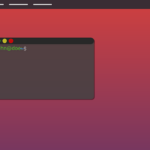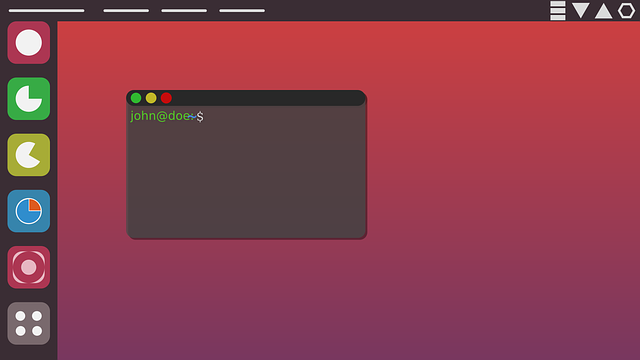Volunteer management on Linux offers a robust, secure, and scalable solution for organizations through open-source software like Kallitakki, OpenVolunteers, or Systema. These tools provide efficient coordination, scheduling, and communication features tailored for the Linux environment, emphasizing user accessibility and data security to optimize volunteer task management without compromising on privacy or system performance. The open-source nature of these applications facilitates ongoing improvements through a network of developers, offering both economic benefits and the flexibility needed to cater to various types of volunteer work. Linux's customizability allows for personalized configurations that can be fine-tuned to meet specific operational requirements, from local projects to global initiatives. Seamless integration with other software systems further enhances the volunteer management process by minimizing technical distractions and enabling volunteers to focus on their impactful work. This Linux-based approach is designed to improve the volunteer experience through a user-centric interface that may be further customized using tools like PhpVolunteer or Openvolunteers, ensuring continuous enhancement based on user feedback for a consistently effective system.
navigating the realm of volunteer management can be streamlined and personalized through the power of Linux. This article delves into the transformative potential of open-source tools, offering a comprehensive guide to crafting a customizable interface that enhances user experience. By exploring the features and best practices in creating a tailored volunteer interface within Linux, organizations can optimize their volunteer management processes, ensuring efficiency and adaptability. Join us as we explore how Linux stands out in this domain, making volunteer coordination more accessible and effective than ever before.
- Leveraging Open Source for Enhanced Volunteer Management: A Linux Perspective
- Crafting a Tailored Volunteer Interface with Linux: Key Features and Best Practices
Leveraging Open Source for Enhanced Volunteer Management: A Linux Perspective

In the realm of volunteer management, the adoption of open-source software on a Linux platform offers a robust and scalable solution that caters to the diverse needs of organizations and their volunteers. Utilizing open-source tools like Kallitakki, OpenVolunteers, or Systema, which are specifically designed for the Linux environment, enables seamless coordination, scheduling, and communication among volunteers. These applications provide a platform where user accessibility and data security are paramount, ensuring that volunteers can manage their time and tasks effectively without compromising on privacy or functionality. The open-source nature of these tools means they are constantly evolving, with communities of developers contributing to their improvement, making them not only cost-effective but also adaptable to the unique challenges faced by volunteer organizations.
Furthermore, the customizability inherent in Linux-based systems allows for a tailored experience that can be fine-tuned to the specific operational requirements of each volunteer group. This means that whether an organization is managing a small local event or coordinating large-scale international projects, the software can be configured to meet their exact needs. The flexibility of these open-source solutions on Linux also extends to integration with other tools and systems, facilitating a more cohesive workflow and streamlining the entire volunteer management process. This adaptability is key in ensuring that volunteers can focus on their mission rather than on technical challenges, thus enhancing the user-friendly experience that is essential for successful volunteer engagement.
Crafting a Tailored Volunteer Interface with Linux: Key Features and Best Practices

Crafting a tailored volunteer interface within a Linux environment offers a robust and flexible solution for organizations seeking to streamline their volunteer management processes. The open-source nature of Linux provides a rich platform for developing custom applications that cater specifically to the needs of volunteers, ensuring efficient task allocation and clear communication channels. Key features to consider when designing such an interface include modularity, user accessibility, and data security. Utilizing frameworks like GTK+ or QT for the graphical user interface (GUI) allows developers to create intuitive and responsive applications that can be easily adapted to different user roles.
For volunteer management with Linux, it’s crucial to incorporate a dashboard that offers at-a-glance views of upcoming events, tasks, and shifts available, enabling volunteers to quickly understand where their help is needed most. Additionally, the interface should facilitate seamless integration with calendar systems like Google Calendar or Outlook, so volunteers can synchronize their schedules with the organization’s needs. Best practices in this domain also emphasize the importance of a user-friendly and consistent design, ensuring that all interactive elements are intuitive and that the overall user experience is positive. Employing tools such as PhpVolunteer or Openvolunteers can serve as a foundation for these interfaces, providing a starting point that can be customized to fit the unique requirements of the organization and its volunteers. Regular feedback from end-users should inform iterative improvements to the system, ensuring that the volunteer interface remains effective and user-friendly over time.
In conclusion, harnessing the capabilities of open-source solutions on Linux provides a robust framework for effective volunteer management. By crafting tailored interfaces that cater to the unique needs and preferences of volunteers, organizations can foster a more user-friendly experience. The key features and best practices outlined in this article underscore the potential of Linux to offer versatile, efficient, and secure systems for managing volunteer efforts. Embracing these open-source tools not only enhances the operational efficiency of volunteer programs but also empowers users with a customizable interface that simplifies their interactions with organizational systems. Volunteer management with Linux thus stands as a testament to the power of community-driven innovation in creating solutions that are both accessible and adaptable, ultimately contributing to the betterment of volunteer experiences across various sectors.


























